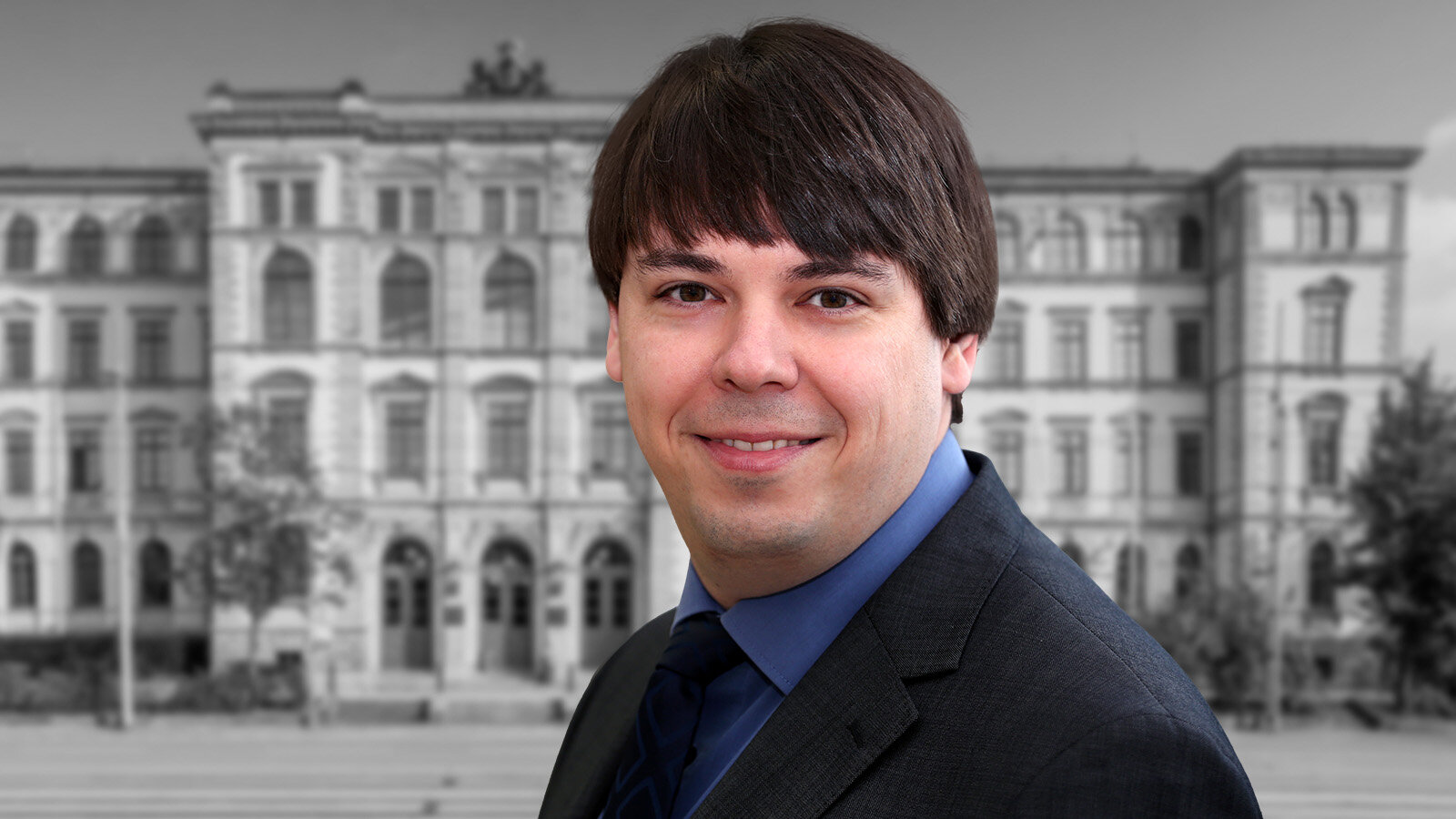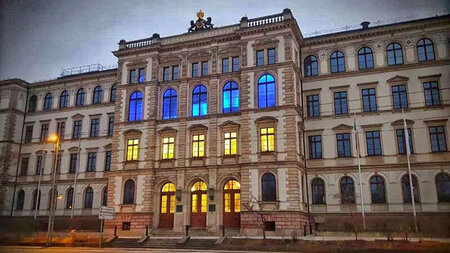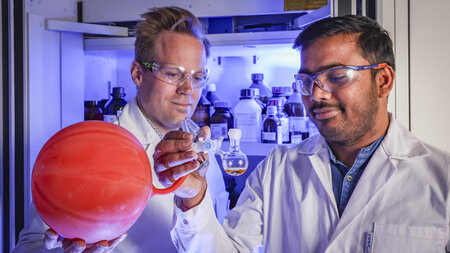Excellent Appointment: First Heisenberg Professorship for Chemnitz University of Technology
Chemist Prof. Dr. Martin Breugst took over one of the most renowned Heisenberg Professorships at Chemnitz University of Technology, funded by the German Research Foundation, on April 1, 2022
 enlarge picture
enlarge picture On April 1, 2022, Prof. Dr. Martin Breugst took over the first and highly prestigious Heisenberg Professorship of the German Research Foundation (DFG) at Chemnitz University of Technology. The Professorship of Theoretical Organic Chemistry is located at the Faculty of Natural Sciences. Professorships within the Heisenberg Programme are among the most prestigious and highly endowed means of third-party funding for PhD scientists in Germany. By awarding the Heisenberg Professorship to Martin Breugst, the DFG certifies the excellent status of his research work at Chemnitz University of Technology and will fund it with approximately 760,000 euros over five years.
If the interim evaluation is positive, the funding is linked to a permanent professorship at the Institute of Chemistry in the Faculty of Natural Sciences at Chemnitz University of Technology. Furthermore, the subject area covered by Breugst as part of his Heisenberg Professorship makes a lasting contribution to strengthening the core competence of Materials and Smart Systems at Chemnitz University of Technology.
"We are very pleased that Chemnitz University of Technology has been honored in such an outstanding way by the German Research Foundation with the establishment of the first professorship within the Heisenberg Programme. This emphasizes the excellence of the research environment and the outstanding support of young scientists at our University as well as at the Faculty of Natural Sciences. In addition, the core competence ‘Materials and Intelligent Systems’ will be strengthened. The professorship within the Heisenberg Programme is of course also a personal success for Mr. Martin Breugst, on which I congratulate him very warmly", says Prof. Dr. Uwe Götze, Deputy President and Vice President for Transfer and Academic Qualification at Chemnitz University of Technology.
"I am very pleased to welcome Martin Breugst to our faculty with a Heisenberg Professorship. With him, we gain an outstanding scientist and university teacher who is recognized in the international community. The research profile of colleague Breugst will allow a close cooperation with professorships primarily conducting research in the molecular field, which will have a positive long-term impact on the development of Chemnitz as a research location," says Prof. Dr. Thomas Seyller, Dean of the Faculty of Natural Sciences at Chemnitz University of Technology.
"During my doctoral thesis, I was able to get to know Chemnitz University of Technology as part of a cooperation. In recent years, I have been very impressed by both the research orientation and the faculty at the Institute of Chemistry, and I see a lot of potential for joint projects here," says Prof. Dr. Martin Breugst. With my scientific profile, I can build up a lot of new things in the field of computational chemistry on the one hand and continue research projects in the field of physical organic chemistry on the other.”
Focus on the theory of chemical reactions and organic chemistry - Use and exploration of novel materials
With the new and first Heisenberg Professorship, the focal points at the Institute of Chemistry of Chemnitz University of Technology in the field of the theory of chemical reactions and organic chemistry are now ideally covered in research and teaching.
Martin Breugst's research area involves the analysis of reaction mechanisms, in particular using computational methods. He focuses on non-covalent interactions in organocatalysis as well as on the elucidation of reaction mechanisms and selectivities. Among other things, he has succeeded in demonstrating for the first time that halogen bridges are the cause of the catalytic activity of molecular iodine. Additionally, his intensive international collaboration with various research groups contributes to a better understanding of reaction mechanisms of a wide variety of reactions.
"On the one hand, I would like to continue productive research in the field of mechanism analysis and non-covalent interactions with my research group at the Chemnitz site in the coming years. On the other hand, collaborations within the Institute of Chemistry and the Faculty of Natural Sciences now also allow these interactions to be used for novel materials and molecular switches," says Martin Breugst.
About the person: Prof. Dr. Martin Breugst
Martin Breugst graduated with honors in Chemistry from Ludwig Maximilian University of Munich in 2006. At LMU Munich, he also wrote his dissertation on A Marcus-Theory-Based Approach to Ambident Reactivity, with which he was awarded a summa cum laude doctorate in 2010. He then conducted postdoctoral research at the Department of Chemistry and Biochemistry at the University of California, Los Angeles (USA) from 2011 to 2013 on a Feodor Lynen Fellowship from the Alexander von Humboldt Foundation.
Since October 2013, he has been leading a junior research group at the Department of Chemistry at the University of Cologne as a Liebig Scholar, where he also completed his habilitation on Analysis of Reaction Mechanisms with a Focus on Computational Investigations in 2017.
From 2018 to 2019, Breugst held a substitute professorship at the Faculty of Chemistry and Pharmacy at the University of Regensburg. This was followed by a three-semester deputy professorship at the Institute of Organic Chemistry at RWTH Aachen University.
In March 2021, he was accepted into the DFG's Heisenberg Program.
Keyword Heisenberg Professorship
The DFG's Heisenberg Program is named after the German physicist Werner Heisenberg, who was awarded the Nobel Prize in Physics at the age of 31. The DFG's prestigious program enables outstanding scientists who meet all the requirements for appointment to a long-term professorship to prepare for a position of scientific leadership and to work on their own research topics during the funding period.
A Heisenberg Professorship provides funding for a temporary professorship at a German university and flexible research funding.
(Article: Matthias Fejes / Translation: Brent Benofsky)
Matthias Fejes
31.03.2022





